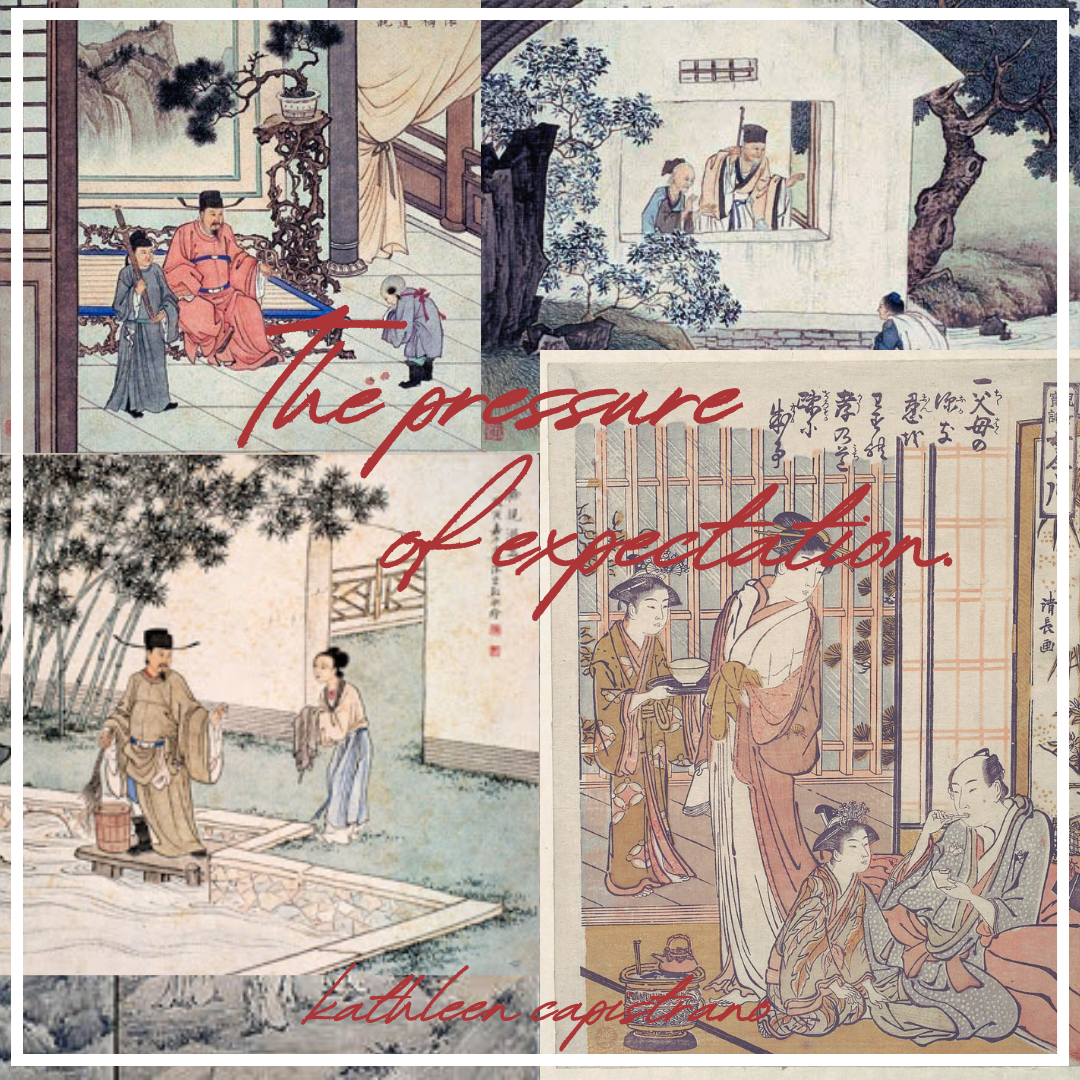In cultures where filial piety remains prominent, the bond between a parent and a child is considered sacred, created solely from obedience, loyalty, and respect.
Merriam-Webster’s official definition of filial piety is “reverence for parents considered in Chinese ethics, the prime virtue and the basis of all right human relations.” In more simple terms, it is the belief that respect and obedience towards one’s parents is a moral obligation.
Weaved into Confucian culture and deeply ingrained into the roots of many Asian cultures, filial piety is meant to cultivate harmony and cohesion within a family, but in some circumstances, it can lead to damaging consequences for family relationships. While filial piety is not strictly bound to Asia, it is where the belief is currently most prominent.
“The concept of filial piety, in my opinion, is extremely damaging towards family relationships,” said senior Giovanni Clemente. “I am a firm believer in the principle of respect being earned, not just given because of someone’s family status.”
The expectation of filial piety can create resentment and bitterness within families, especially when children feel that their efforts are not being recognized or appreciated. In turn, this can give parents a sense of entitlement, expecting their children to constantly up their efforts in an attempt to “make them proud.”
“Even though it’s not a problem I struggle with personally, I can definitely see how frustrating it can be to live with those kinds of family dynamics,” said senior Emily Shanks. “I think that filial piety kind of ties into that idea of parental love being unconditional until it’s conditional. Obviously, it shouldn’t be like that, but as children, what can we do?”
Senior Andray J.C. Reyes agrees, stating that kids should not feel obligated to give their parents unconditional respect unless the elder makes an effort to earn it.
The pressure to meet these expectations not only strains parent-child relationships but also intergenerational relationships, as societal norms continue to evolve. Younger generations are increasingly at odds with traditional values upheld by both parents and grandparents, leading to a seemingly never-ending clash of ideologies and beliefs, as well as feelings of disconnection and discontentment within families.
“I think filial piety is a very conservative and outdated belief, especially considering the more ‘woke’ era our generation is in,” said Reyes. “While I think that respecting your parents and elders is a good thing, you should have a right to dislike and distance yourself from them without repercussions or shame.”
Furthermore, the enforcement of this belief can create toxic boundaries, blurring the lines between parental authority and a child’s autonomy. In some cases, children may feel obligated to sacrifice their aspirations in favor of what their parents want.
“Children should be able to follow their dreams and not have to follow their parents’ every word just because they expect us to,” said Clemente.
The emphasis on filial piety within cultures can feel suffocating for some, making honest communication impossible when children fear judgment or punishment from their parents for disobedience or speaking out.
“While I do think that children should be grateful and respect their parents to a degree, it should be for reasons that they deserve it, and not just out of an obligation,” said senior Bella Tillson.
While the origins of filial piety were likely virtuous, its firm enforcement can have irreversible effects on family dynamics and relationships. By acknowledging the complexities of this tradition and balancing expectations with mutual respect, families can cultivate relationships that honor both tradition and individual autonomy.







